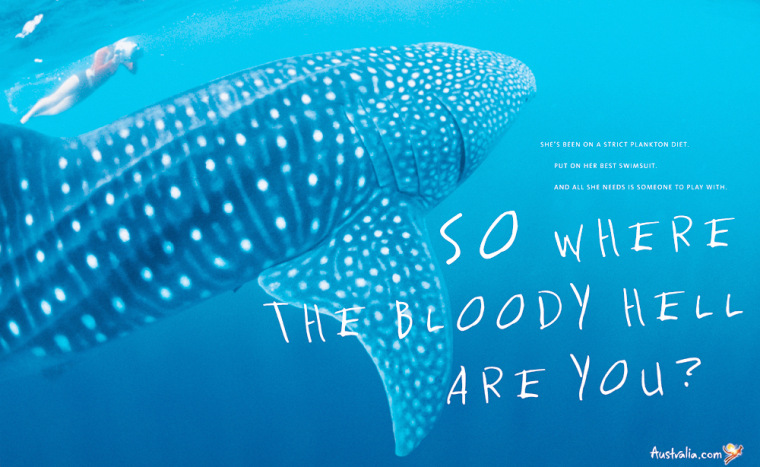Australia launched a new $133 million (A$180 million) advertising campaign on Thursday which seeks to attract international tourists by swearing at them.
“Where the bloody hell are you?” asks the new campaign launched by Australian Tourism Minister Fran Bailey.
Bailey said the campaign will target potential tourists in China, Japan, India, the United States, Germany and Britain and would be rolled out in the next few weeks.
It echoes the hugely successful “Put another shrimp on the barbie” tourism campaign of the 1980s, which featured singlet-wearing comedian Paul Hogan and which lured an estimated 250,000 American tourists to Australia.
The new campaign, which can be seen on Tourism Australia’s Web site, features a series of Australian backdrops.
It begins with characters saying: “We’ve poured you a beer and we’ve had the camels shampooed, we’ve saved you a spot on the beach ... and we’ve got the sharks out of the pool.” A bikini-clad woman then asks: “So where the bloody hell are you?”
Bailey and Prime Minister John Howard both defended the campaign against complaints from some Australian politicians about the use of the word “bloody”, a mild profanity used to express annoyance. The opponents were concerned that the word will not go down well in overseas markets.
“It’s a colloquialism, it’s not a word that is seen quite in the same category as other words that nobody ought to use in public or on the media or in advertisements,” Howard said.
“I think the style of the advertisement is anything but offensive but is in fact in context and I think it’s a very effective ad,” he told reporters in Sydney.
Howard complained last month about the decline of good manners in Australian society, blaming the drop in standards on increasing vulgarity on television.
Bailey said the campaign had been tested in some of Australia’s key markets and had been successful, although she gave no details.
“This is presenting Australia as we are. We’re plain-speaking, we’re friendly. It’s using the vernacular,” Bailey told reporters.
While the “shrimp on the barbie” campaign attracted thousands of tourists, its crassness caused many Australians to cringe.
It was followed in 1995 by a $74 million (A$100 million) campaign — then Australia’s biggest single marketing and advertising campaign — which sought to convince the world Australia also had culture. Bailey said Australia’s tourism industry was worth A$73 billion and employed 500,000 Australians.
